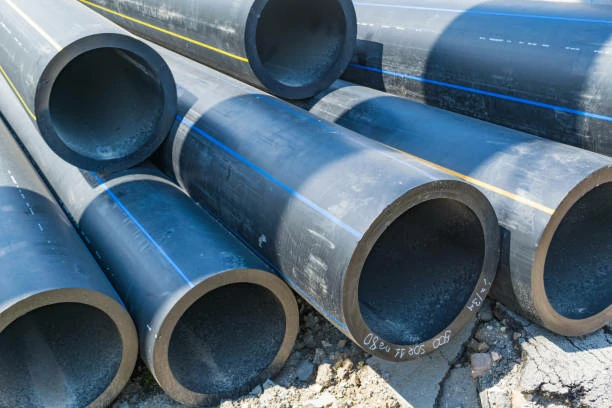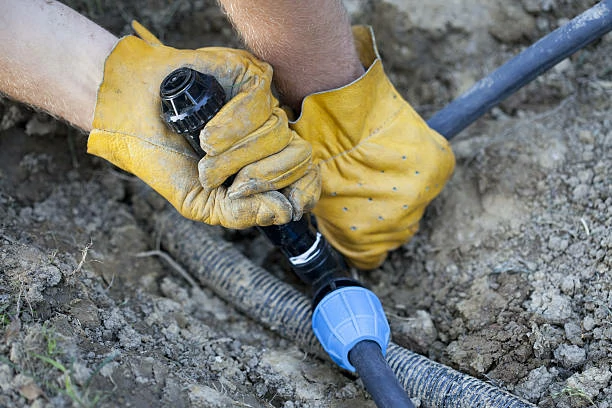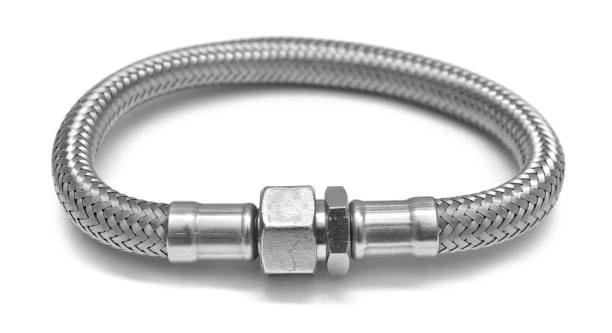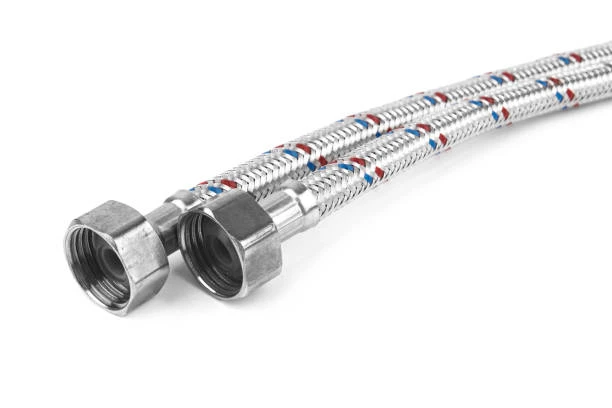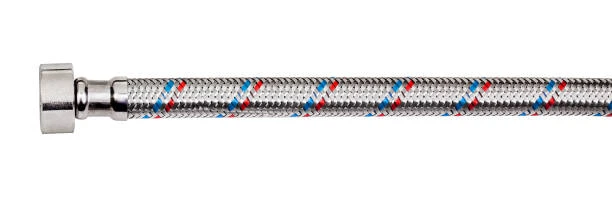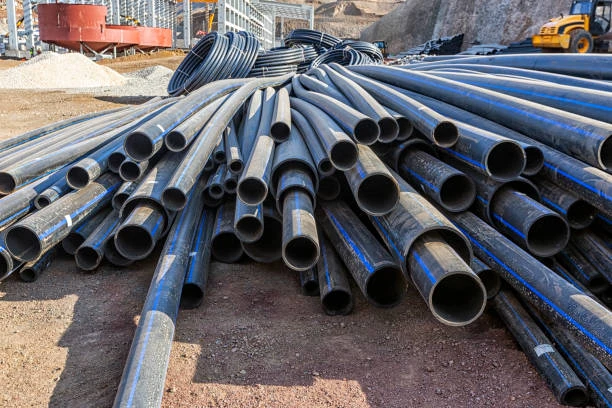
Introduction
Water supply systems today require materials that ensure reliability, efficiency, and safety. In this context, the HDPE water pipe has emerged as a trusted solution for both hot and cold water applications. It offers superior resistance to corrosion, chemical stability, and long-term durability, making it ideal for residential, commercial, and industrial projects.
Furthermore, HDPE water pipes are lightweight and flexible, allowing easy handling and installation. Consequently, they reduce labor costs, minimize maintenance, and provide consistent water flow. In this article, we will explore the features, applications, selection criteria, installation guidelines, and comparisons with other pipe materials, showing why HDPE pipes are a reliable choice for modern water systems.
Frequently Asked Questions (FAQ)
1. What is an HDPE water pipe?
An HDPE water pipe is a high-density polyethylene pipe designed to transport water safely. Additionally, it is lightweight, corrosion-resistant, and durable, making installation faster and maintenance easier.
2. Can HDPE pipes handle hot water?
Yes, specific grades of HDPE pipes are suitable for hot water, typically up to 60–70°C. Moreover, higher-grade options are available for industrial applications requiring elevated temperatures.
3. Are HDPE water pipes safe for drinking water?
Absolutely. HDPE pipes comply with potable water standards, do not release harmful substances, and maintain water quality over extended periods.
4. How long do HDPE water pipes last?
HDPE pipes often last over 50 years under standard operating conditions. In addition, their resistance to chemical corrosion, environmental stress, and thermal expansion ensures long-term reliability.
5. How do HDPE pipes compare to metal pipes?
Compared with metal pipes, HDPE is lighter, more flexible, corrosion-resistant, and easier to install. As a result, it reduces installation time, maintenance, and the risk of leaks while maintaining performance.
Definition and Key Features of HDPE Water Pipe
First of all, HDPE, or high-density polyethylene, is a thermoplastic material known for its high strength-to-density ratio. Consequently, HDPE water pipes combine flexibility, durability, and chemical resistance, which ensures long-lasting performance in diverse conditions.
Additionally, HDPE pipes resist corrosion, scaling, and chemical attacks, which helps maintain water quality. Their smooth internal surface reduces friction, improving flow efficiency and energy savings. Moreover, HDPE pipes are flexible enough to accommodate soil movements, ground settlement, and thermal expansion, preventing cracks and leaks.
Another advantage is their lightweight nature, which simplifies transportation and installation. Altogether, HDPE water pipes provide a reliable, high-performance solution for both hot and cold water systems.
Common Uses and Applications
HDPE water pipes are versatile and suitable for a variety of applications:
- Residential water systems: Firstly, HDPE pipes deliver safe, reliable water to homes, ensuring low maintenance and long-term performance.
- Commercial and office buildings: In addition, they support water distribution for multi-story buildings and facilities efficiently.
- Industrial water transport: HDPE pipes are used for cooling water, process water, and other industrial applications due to their chemical resistance.
- Irrigation and agriculture: Furthermore, they provide durable, flexible solutions for irrigation networks that require efficient water delivery.
- Municipal water supply: HDPE pipes are widely employed in city networks for potable and non-potable water due to their long lifespan and corrosion resistance.
Therefore, HDPE water pipes adapt well to different environments and deliver reliable, safe, and cost-effective water supply solutions.
Selection Guide for HDPE Water Pipe
Choosing the right HDPE water pipe involves evaluating multiple factors:
- Material quality: Ensure the HDPE grade meets potable water and industrial standards.
- Pipe diameter and pressure rating: Select a size and pressure class that suits system requirements to avoid leaks or reduced flow.
- Color coding: Pipes often have colors indicating intended use, such as blue for potable water and black for cold water.
- Certifications: Look for national and international certifications to ensure quality, safety, and compliance.
- Supplier reliability: Choose reputable manufacturers to guarantee consistent quality, support, and warranty.
By considering these aspects, you can ensure that HDPE water pipes provide optimal efficiency, reliability, and long-term performance.
Installation Considerations
Although HDPE water pipes are easier to install than traditional metal pipes, careful practices are essential for long-term performance.
First, ensure the trench or installation site is clean and free from sharp debris. Next, make accurate pipe cuts to ensure proper alignment. In addition, follow recommended joining methods such as butt fusion or electrofusion to achieve strong, leak-free connections.
Moreover, support pipes evenly to prevent bending stress and include expansion loops for thermal expansion. Finally, conduct pressure tests after installation to verify system integrity. Following these guidelines ensures reliable, long-lasting performance.
HDPE Water Pipe vs Other Pipe Materials
| Feature | HDPE Water Pipe | PVC Pipe | Metal Pipe |
|---|---|---|---|
| Corrosion resistance | Excellent | High | Low |
| Temperature resistance | Moderate to high | Low to moderate | High |
| Flexibility | High | Low | Low |
| Weight | Light | Moderate | Heavy |
| Ease of installation | Easy | Moderate | Difficult |
| Maintenance cost | Low | Low | High |
| Lifespan | 50+ years | 25–40 years | 20–30 years |
As shown, HDPE water pipes outperform PVC and metal pipes in corrosion resistance, flexibility, installation ease, and maintenance cost. Consequently, they represent a reliable, high-performance choice for hot and cold water systems.
Conclusion
In summary, HDPE water pipes offer unmatched reliability, durability, and performance for both hot and cold water applications. They provide corrosion resistance, flexibility, smooth internal surfaces, and long-term efficiency.
Additionally, HDPE pipes suit residential, commercial, industrial, municipal, and agricultural systems. By selecting the appropriate grade, following installation best practices, and using certified products, users can achieve optimal performance, safety, and long-term savings.
Therefore, for modern water systems requiring durability, safety, and efficiency, HDPE water pipes remain a superior choice, delivering high performance and lasting reliability across a wide range of applications.
IFNS’s international standards
IFNS products comply with internationally recognized standards to ensure quality, safety, and reliability. These standards include ASTM D3035 and ASTM D3350 for polyethylene pipes, ISO 4427 Series and EN 12201 Series standards for water supply systems, as well as DIN 8074/8075 and GB/T 13663 Series standards. Additionally, IFNS adheres to regional standards such as AS/NZS 4130, JIS K6760, BS 6572, and CSA B137.1, ensuring that its products meet rigorous performance and durability requirements worldwide.
Connect
IFNS, a Chinese manufacturer with 30 years of experience, specializes in high-quality plastic pipes, fittings, and valves. Interested in IFNS’s copper fittings, copper valves, plastic pipes, or fittings? Contact us today. IFNS offers a wide range of standard pipes tailored to your needs. Explore our affordable, cost-effective valve and piping system products.
We respond to emails or faxes within 24 hours. For immediate assistance, call us anytime with questions about our products.


